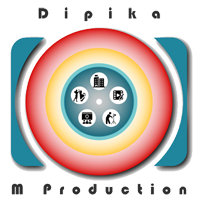Gonadotropin Dosage: An In-Depth Guide
Gonadotropins are critical hormones that play a significant role in reproductive health. They stimulate the gonads—ovaries in females and testes in males—to produce sex hormones and gametes. Understanding the proper dosage of gonadotropins is essential, whether for clinical treatments such as infertility or hormonal therapies following anabolic steroid cycles. This article explores the factors influencing gonadotropin dosing, common forms available, recommendations based on individual conditions, and the implications of improper dosage.
What Are Gonadotropins?
Gonadotropins primarily include two hormones produced by the pituitary gland:
– **Luteinizing Hormone (LH)**: Stimulates testosterone production in males and triggers ovulation in females.
– **Follicle-Stimulating Hormone (FSH)**: Promotes sperm production in men and helps with the development of ovarian follicles in women.
These hormones can be administered in synthetic forms, often used to treat various medical conditions related to fertility.
Factors Influencing Gonadotropin Dosage
Several factors must be considered when determining the appropriate dosage of gonadotropins:
1. **Gender**: Male and female patients typically require different dosages due to physiological differences.
2. **Age**: Hormonal needs may change with aging, necessitating dosage adjustments.
3. **Underlying Medical Conditions**: Conditions like hypogonadism or polycystic ovary syndrome (PCOS) can influence the required dose.
4. **Treatment Goals**: Whether the goal is to induce ovulation, manage hormone levels, or support post-cycle therapy can affect dosage recommendations.
5. **Response to Treatment**: Individual responses to gonadotropin therapy can vary widely; monitoring is essential for dosage adjustments.
Common Forms of Gonadotropins
Gonadotropins are available in several formulations, including:
– **Human Menopausal Gonadotropin (hMG)**: Contains both FSH and LH and is often used for stimulating ovarian function.
– **Recombinant FSH (rFSH)**: A purified form of FSH that is bioidentical to naturally occurring FSH.
– **Luteinizing Hormone (LH)**: Available in both natural and recombinant forms for specific treatments.
Each product will have its own recommended dosage schedule, which healthcare providers tailor to individual patient needs.
Dosage Recommendations
The dosage of Gonadotropin is a crucial aspect to consider in post-cycle therapy. It is essential to ensure the right dosage to achieve the desired results and avoid any potential side effects. For those looking for reliable and quality post-cycle therapy products, you can Dapoxetine (Priligy) buy from steroidssp.com. They offer a wide range of products to cater to your specific needs.

Dosage recommendations can vary, but general guidelines include:
– **For Women Undergoing Ovarian Stimulation**:
– Initial doses of 75–150 IU of hMG or rFSH daily, adjusted based on response.
– Monitoring through ultrasound and blood tests is necessary.
– **For Men with Hypogonadism**:
– Doses of 750–1500 IU of hCG twice a week combined with FSH, depending on the severity of their condition.
– **For Post-Cycle Therapy**:
– Typical doses may range from 1000–2000 IU of hCG every other day for up to two weeks.
Always follow healthcare provider recommendations for personalized dosing plans, as they will factor in individual medical history and response to treatment.
Risks of Improper Dosage
Adhering to the correct dosage of gonadotropins is essential to minimize risks, including:
– **Overstimulation of the Ovaries**: Leading to conditions such as Ovarian Hyperstimulation Syndrome (OHSS).
– **Hormonal Imbalances**: Resulting from underdosing or overdosing, leading to a variety of symptoms.
– **Long-term Health Issues**: Unregulated use, especially during post-cycle therapy without professional guidance, can lead to severe hormonal dysfunction.
Conclusion
Gonadotropin dosage is a complex yet vital aspect of managing reproductive health and supporting hormonal balance in various therapeutic scenarios. Individualized treatment plans are imperative for achieving optimal outcomes while minimizing risk. Anyone considering gonadotropin therapy should consult with a qualified healthcare provider to develop a tailored approach that aligns with their specific health needs and treatment goals..
